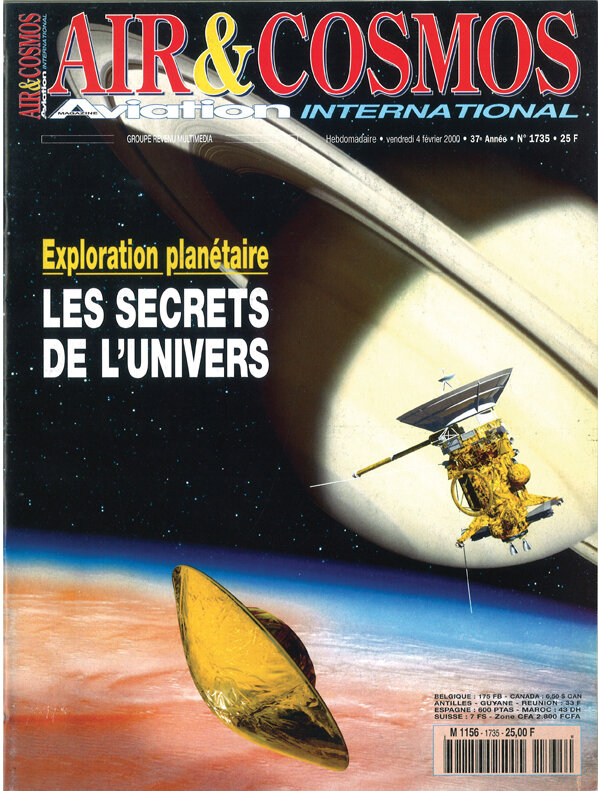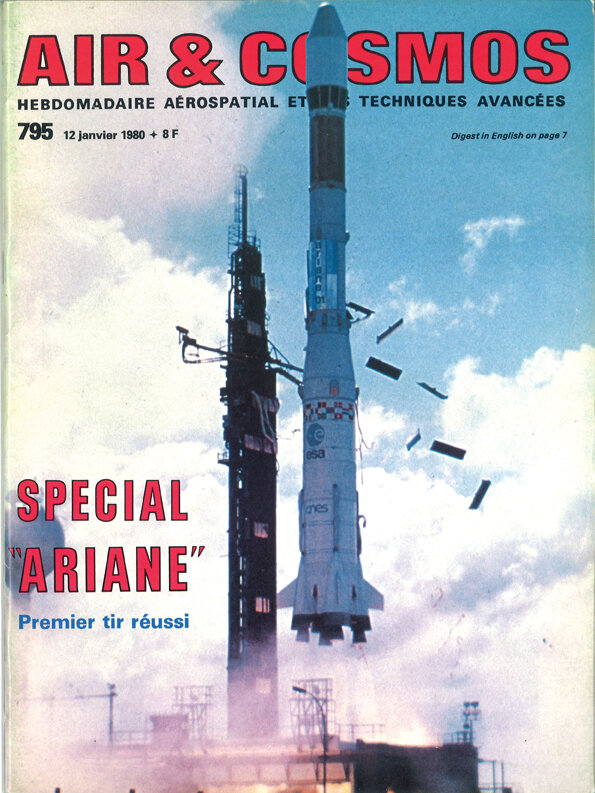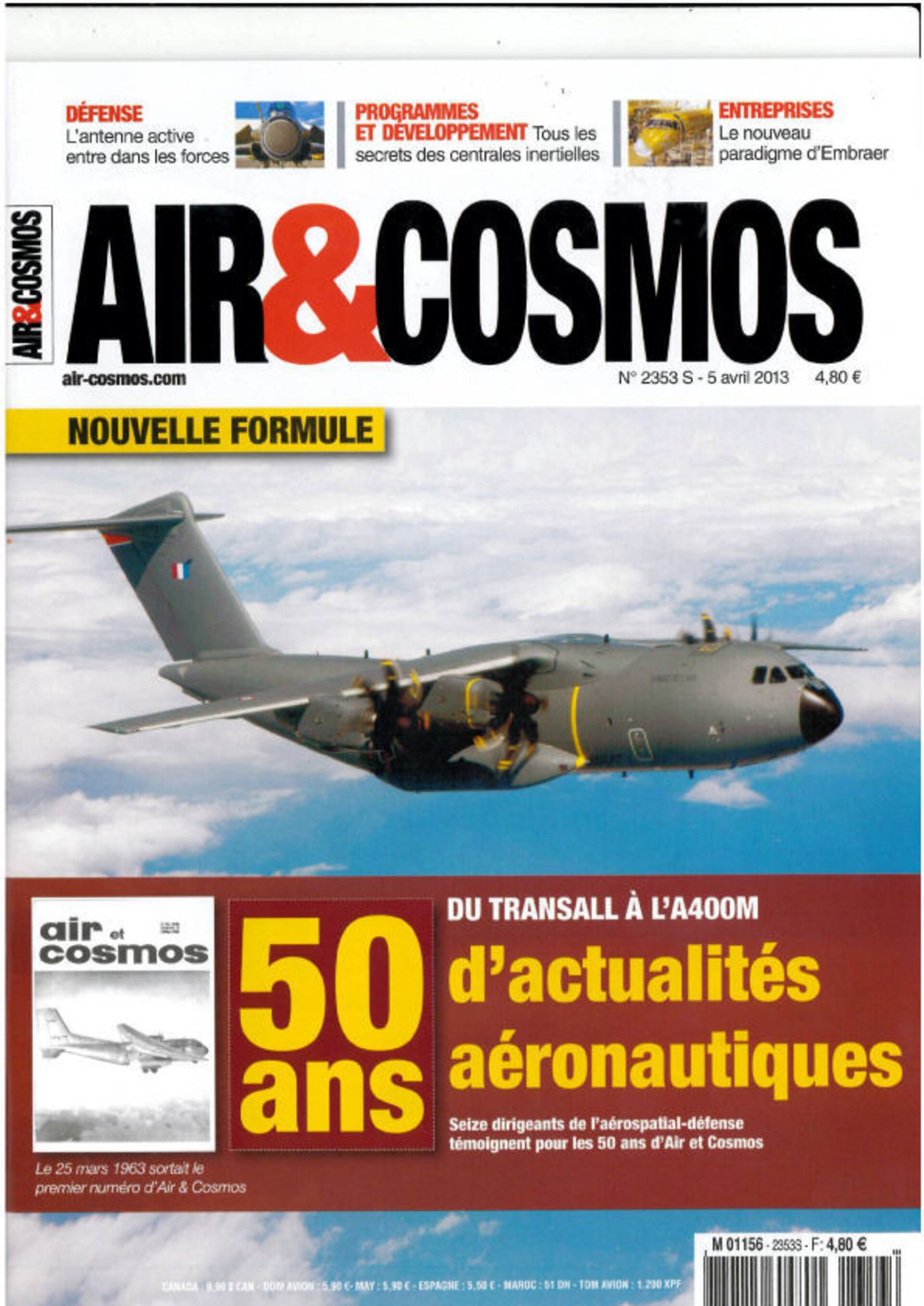Space has gone from remarkable to commonplace
Air & Cosmos is celebrating its 50th anniversary. I can still remember my surprise on seeing my name in its pages for the first time in the early 1970s, in an article describing Onera’s work on suppression of the pogo effect in the Diamant launchers.
Subsequently, I tended to identify Air & Cosmos with its journalists, in particular Pierre Langereux, who never seemed to miss any event or conference, and always had questions to put. He, along with Christian Lardier, his successor, are the two people I very much held in esteem, they were true founts of knowledge. More than journalists, they were space experts, and to some extent part of the family.

Next year it will be the European Space Agency’s turn to celebrate its 50th anniversary. I have lived through those years, and the space sector has changed immeasurably since then, though the way I perceive it has changed too, making it difficult to analyse. Nevertheless, it seems to me that two major revolutions have taken place in the course of those decades.
The first relates to Europe’s standing. Fifty years ago, all space activities were concentrated in the hands of the United States and the Soviet Union, which regularly sent people into orbit and used space to military ends. This was the age of the discovery of space and the race between the two superpowers. In Europe, we started considerably late in the day, but gradually built up a solid reputation. Now, some fifty countries around the world carry out space activities, on varying scales, and all nations on Earth use space systems, if only for telecommunications and meteorology. Europe has become a key player and we even lead the field in many areas, from cosmology to Earth sciences, and in commercial applications, from telecommunications to launchers.

The other revolution is to do with the growing place of space in our everyday lives, and of the increasing number of applications based on the use of satellites. On the whole, most users have no idea that there is a space component to TV, mobile telephony, banking transactions and even meteorology, where you end up forgetting where the images come from. Space has gone from being an extraordinary spectacle to an everyday service.
For the fifty years to come, I quote Antoine de Saint-Exupéry: “L’avenir n’est jamais que du présent à mettre en ordre. Tu n’as pas à le prévoir, mais à le permettre” (The future is only ever the present to be put in order. Your task is not to foresee the future, but to enable it).

I do not know if over the next fifty years we will return to the Moon or go to Mars. However, what I can say is that we will be drawn into greater cooperation and, at the same time, greater competition. Cooperation, still limited at present to a few partners, will spread and become global. It will no longer be possible to keep China, India or South Korea out of the great scientific and exploration ventures undertaken.
At the same time, competition on services will become more cutthroat along with the rising number of players acquiring the requisite technological capability and benefiting from different economic rules. At present, it is difficult to undercut the Chinese. If we want to be competitive, we need to be better than them. Next, it might be the turn of India, and so on. There will always be countries able to produce more cheaply than us, and we will have no alternative but to continue to be the best in order to remain competitive in space, an area which is coming to play a critical role in our daily lives.

Apart from that, the future will also depend on politics, economics and many other factors besides, even disruptive innovation. A small meteor which exploded over the Urals suddenly led to concern about the possible ways of protecting ourselves from such events. Disruptive innovation on Earth – particularly in computing, nanotechnologies and new materials – will also have an impact on the development of the space sector.
With hindsight, one can observe that nothing has happened as one might have imagined forty or fifty years ago, but that on the other hand numerous developments that we had not imagined have come along and changed our lives. Tomorrow, we will improve technologies, satellites, sensors and data quality, but all that which enhances our future will come from those who, on the ground, have the best ideas. It is above all in brainpower that we must invest.




